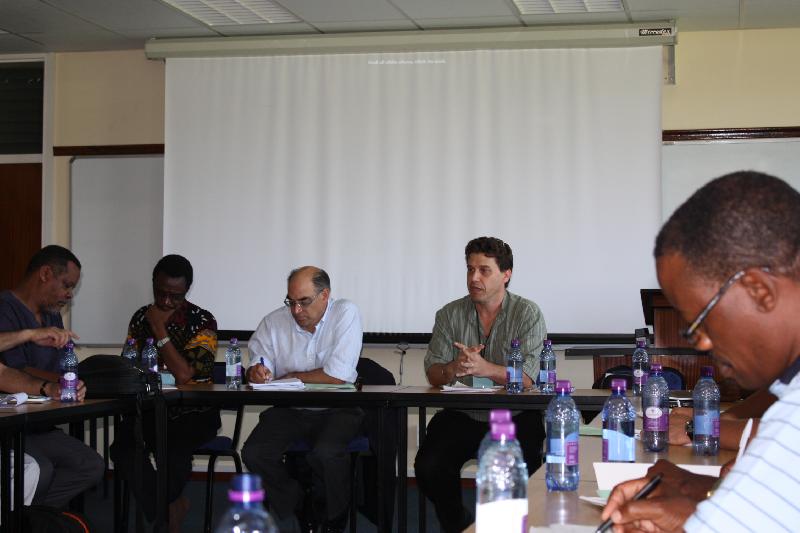
Yesterday’s theme (18 January 2011) at the African Institute for Agrarian Studies (AIAS) Summer School was “Crisis, Scramble and Primitive Accumulation” and included a segment of the programme that looks at how China has affected Africa.
This was preceded by a talk presented Paris Yeros about the definition of the word ‘scramble’ in a global and historical context. Yeros is an adjunct professor of International Studies at Minas Cerais in Brazil and a research associate of the African Institute of Agrarian Studies. He defined scramble as a post World War Two phenomenon where big businesses shift the capital burden onto the country’s population. “To the extent that today, capitalism is predatory,” he added. Now that companies are privatised, we should question whether they are subservient, reactive or defensive.
Prof Yeros believes that the scramble in Africa’s great lakes region started with radicalisation, such a found in Zimbabwe’s government, which “threw the US for a loop”. This caused a loss of control in Africa over the last 30 years and set the US scrambling for other countries’ resources.
Mr Ng’wanza Kamata then spoke about Africa’s “obsession with China”, examining both our idea of what and who the Chinese are as well as the reality of China’s economic interest and investments in African countries. Mr Kamata is a political science lecturer at the University of Dar es Salaam in Tanzania and the chair of the Land Rights Research and Resources Institute board. He says the image of China “we are presented with” is not positive because of China’s poor record of human rights, which some feel could cause more human rights violations to take place in Africa.
Since the 90s, China has been increasingly involved in Africa and its resources so the scramble for land and resources are linked. China is prompted by a need for resources, such as oil, and Europe enters the picture because it is concerned about competing with China for Africa’s resources. “The feeling is to keep China from exploiting our resources,” he said.
But the image of China we actually experience is from the countless shops in our streets, selling so-called ‘affordable’ goods, “which keeps people happy, but not in the long term”. Because when it comes to ‘exporting’ labour from their own country, there is an almost inexhaustible supply of cheap labour “in their own backyard.” In this sense, China is one up from Europe where they employed local labour instead of bringing in European citizens to do the work.
“China is an alternative development model for Africa, we are looking at China for change. But we should develop our own model based on our own experiences,” concluded Mr Kamata.
